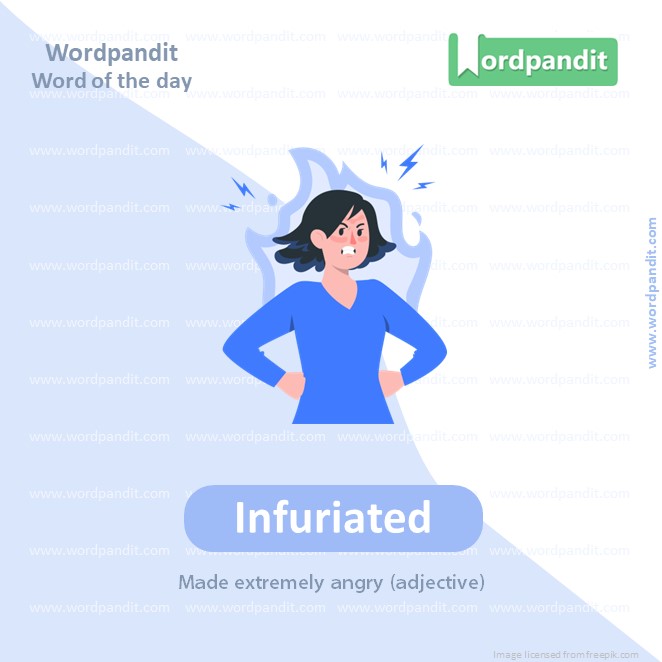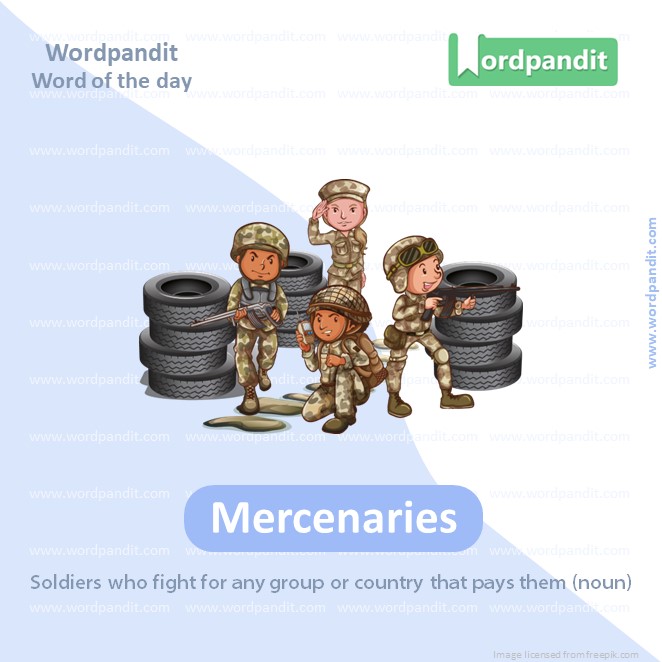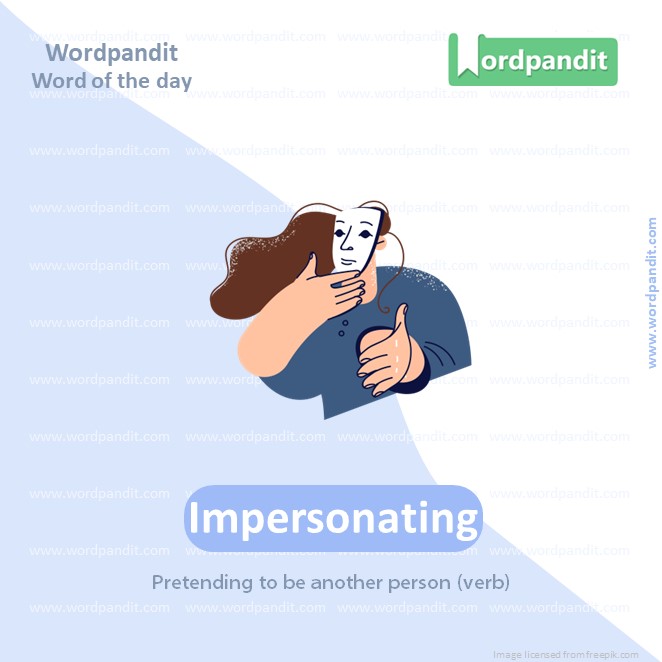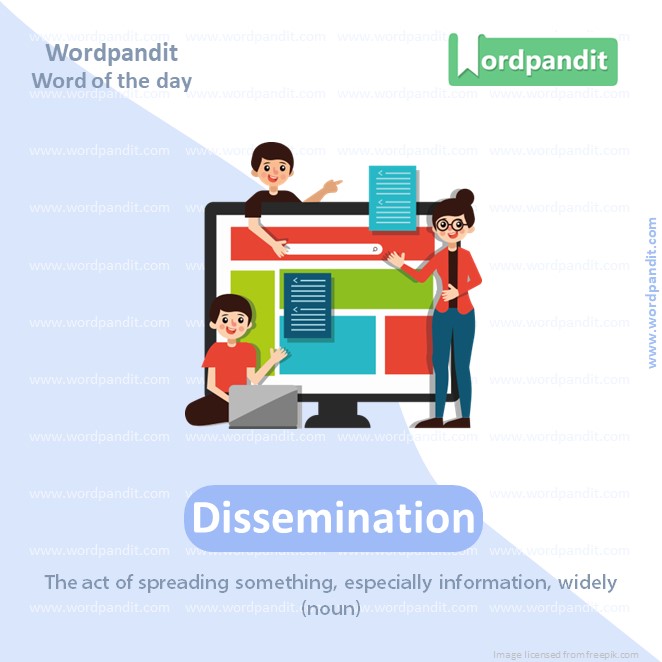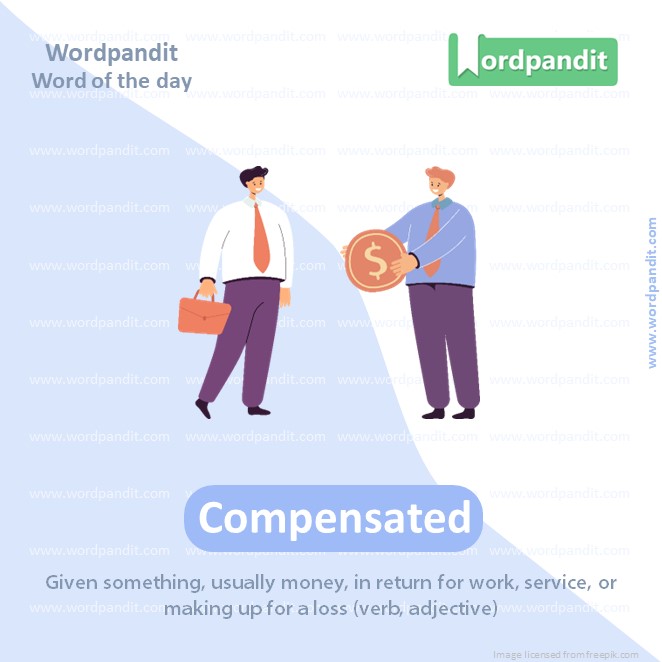Daily Vocabulary from Indian Newspapers and Publications
Welcome to Wordpandit’s Indian Vocabulary Hub
At Wordpandit, we understand the importance of staying rooted in the local context while expanding your language skills. This section focuses on enriching your vocabulary with words and phrases drawn from India’s leading newspapers and publications, ensuring you're learning vocabulary that is practical, relevant, and uniquely Indian.
Why Indian Sources Matter
We believe that the best way to master any language is by immersing yourself in local content. That’s why we carefully curate vocabulary from top Indian publications, including:
- The Hindu
- The Times of India
- The Economic Times
- Hindustan Times
- Live Mint
- The Indian Express
- And many others...
Stay Updated, Stay Relevant
With daily updates from Indian news sources, you’ll be consistently learning words that reflect the trends and shifts in Indian society and culture. Our focus is to provide vocabulary that enhances your understanding of the language in an Indian context.
How Wordpandit Supports Your Goals
Whether you’re preparing for exams, aiming to improve your professional communication, or simply want to stay connected with the latest Indian vocabulary, Wordpandit is here to guide you every step of the way.
Learn with a Practical Approach
Our interactive learning methodology includes real-world examples, engaging activities, and context-specific usage to ensure that every word becomes part of your active vocabulary.
Dive into Indian Vocabulary Today!
Why Choose Wordpandit?
Practical Learning: Focus on words you'll actually encounter in real-world reading, enhancing your comprehension and communication skills.
Diverse Content: From current affairs to scientific breakthroughs, our varied sources expose you to vocabulary across multiple domains.
Effortless Integration: Make Wordpandit a part of your daily routine. Just a few minutes each day can significantly boost your lexicon over time.
Your Path to Vocabulary Mastery
- Visit our Daily Vocabulary section regularly
- Explore new words and their usage in context
- Practice incorporating these words into your own writing and speech
- Track your progress as your vocabulary expands
Start Your Journey Today
Embark on your vocabulary enhancement journey with Wordpandit. By consistently engaging with our daily posts, you'll build a robust vocabulary that serves you well in academic, professional, and personal contexts.
Remember, a word a day keeps linguistic limitations at bay. Make Wordpandit your daily companion in the quest for vocabulary excellence!
WORD-1: Infuriated
Context:
"When Bihar chief minister Lalu Prasad Yadav disallowed his yatra from passing through the state, the kar sevaks were infuriated." - Hindustan Times
Explanatory Paragraph:
The word "infuriated" describes an intense emotional reaction of anger or rage. It goes beyond just being upset—someone who is infuriated is extremely angry, often to the point of shouting, acting out, or demanding immediate action. In the given context, the kar sevaks were deeply angry and outraged at being stopped, reflecting their passionate commitment and frustration.
Meaning: Extremely angry or enraged (Adjective)
Pronunciation: in-FYOOR-ee-ay-tid
Difficulty Level: ⭐⭐ Easy
Etymology: From Latin *infuriatus*, past participle of *infuriare*, meaning "to enrage", from *in-* (into) + *furia* (fury).
Prashant Sir's Notes:
Think of “infuriated” as a very strong version of anger—used when someone's patience has run out. Often appears in news related to protests, politics, and public outcry. Good for high-intensity emotional contexts.
Synonyms & Antonyms:
Synonyms: enraged, incensed, furious, outraged, livid
Antonyms: calm, pleased, content, composed, pacified
Usage Examples:
- The customer was infuriated when the airline lost her luggage for the third time.
- His careless comments infuriated the audience during the debate.
- She was infuriated by the repeated delays in the project.
- The teacher’s unfair grading policy left many students infuriated.
Cultural Reference:
"The Hulk is the perfect fictional example of someone infuriated—when Bruce Banner gets too angry, he literally turns into a raging green monster." - Pop Culture Commentary
Think About It:
What situations make people infuriated, and how can society encourage more constructive ways of handling such emotions?
Quick Activity:
Write down three scenarios where someone might feel infuriated. Then, rewrite them using synonyms of "infuriated" to expand your vocabulary.
Memory Tip:
“Infuriated” contains the word “fury”—think of someone full of fury, like a volcano about to erupt with anger.
Real-World Application:
Understanding the word "infuriated" is useful in expressing intense dissatisfaction in professional settings, such as feedback emails, conflict resolution discussions, or in analyzing public opinion in social and political discourse.
WORD-2: Mercenaries
Context:
"A group of mercenaries had arrived in the country by sea and had tried to overthrow the government." - Hindustan Times
Explanatory Paragraph:
"Mercenaries" refers to individuals, usually soldiers, who are hired to fight in conflicts not out of loyalty or patriotism, but for personal gain—typically money. These hired fighters may work for foreign governments or private entities and are often involved in conflicts where they have no direct stake. In the given context, these mercenaries were likely paid to intervene in another country’s internal politics, attempting a coup or power grab for their employers.
Meaning: Hired soldiers who fight primarily for personal profit, not loyalty (Noun - plural)
Pronunciation: MUR-suh-ner-eez
Difficulty Level: ⭐⭐⭐ Intermediate
Etymology: From Latin *mercenarius* meaning "hired for wages", from *merces* (wages or reward)
Prashant Sir's Notes:
This word is often used in political or military contexts. While originally neutral, it now often carries a negative tone—suggesting greed or lack of principles. Think beyond soldiers—“mercenary” can also describe people who do anything solely for money.
Synonyms & Antonyms:
Synonyms: soldiers of fortune, guns-for-hire, hired hands, freelance fighters
Antonyms: patriots, volunteers, loyalists, conscripts
Usage Examples:
- The government accused the rebels of hiring foreign mercenaries to destabilize the region.
- He fought not for country or cause, but as one of the many mercenaries paid by the highest bidder.
- Several mercenaries were captured and interrogated after the failed coup attempt.
- The novel portrays a ruthless band of mercenaries operating in the shadows of war-torn nations.
Cultural Reference:
"The Expendables" movie series popularized the idea of mercenaries—elite fighters who work for cash, undertaking dangerous missions around the world. - Hollywood Action Culture
Think About It:
Can someone truly be loyal if they are only motivated by money? How do mercenaries blur the lines between soldier and criminal?
Quick Activity:
Write a short paragraph describing a fictional mercenary—give them a name, their motivation, and a recent mission.
Memory Tip:
“Mercenaries” contains “merce” like in “merchant”—think of a soldier who fights like a business deal: no loyalty, just profit.
Real-World Application:
The term "mercenaries" is widely used in discussions about international conflict, security contractors, and ethical questions around warfare—especially when private military companies are involved in foreign interventions.
WORD-3: Impersonating
Context:
"Social media platforms are also obligated under the IT Rules to take down misinformation and impersonating content." - Hindustan Times
Explanatory Paragraph:
"Impersonating" refers to the act of pretending to be someone else, usually to deceive others or commit fraud. On social media, this often includes creating fake profiles, copying names, photos, or personal information to trick others into believing the impersonator is someone they are not. This can lead to scams, misinformation, or reputational damage. In the context of the IT Rules, platforms must actively prevent such deceptive behavior to protect users and uphold digital trust.
Meaning: Pretending to be another person in order to deceive (Verb - Present participle)
Pronunciation: im-PUR-suh-nay-ting
Difficulty Level: ⭐⭐ Easy
Etymology: From Latin *impersonare*, meaning "to represent in person", from *in-* (into) + *persona* (person)
Prashant Sir's Notes:
"Impersonating" is commonly used in cybersecurity, law enforcement, and digital media. It's not always malicious—think of actors impersonating characters—but in online contexts, it usually carries a negative or deceptive connotation.
Synonyms & Antonyms:
Synonyms: mimic, imitate, pose as, pretend, fake
Antonyms: reveal, disclose, identify, authenticate
Usage Examples:
- He was arrested for impersonating a police officer to gain access to the building.
- Scammers often succeed by impersonating bank officials in emails or phone calls.
- The comedian was great at impersonating celebrities on stage.
- Online impersonating is a growing concern, especially during election seasons.
Cultural Reference:
On platforms like Twitter (now X), impersonating famous figures led to the introduction of the “blue tick” verification system to help users identify authentic accounts. - Tech Industry Insight
Think About It:
Where do we draw the line between impersonation for entertainment and impersonation for harm?
Quick Activity:
List three professions or situations where impersonating someone is illegal, and three where it is acceptable or even celebrated (like acting).
Memory Tip:
Break it down: “im-person-ating” — turning yourself into another person. Think of it as “in a person’s skin” to help you remember!
Real-World Application:
Understanding "impersonating" is essential in today’s digital landscape, especially in identifying online scams, protecting digital identities, and reporting fake or harmful content on social media platforms.
WORD-4: Dissemination
Context:
"States like California and Texas have passed laws criminalising the dissemination of deepfake videos influencing elections, while Virginia penalises the distribution of non-consensual deepfake pornography." - Hindustan Times
Explanatory Paragraph:
"Dissemination" refers to the act of spreading something—such as information, ideas, or content—widely to many people. It is commonly used in legal, academic, or media contexts where content is distributed to the public. In the context provided, the term points to the illegal spread of harmful or manipulative content like deepfakes, which can mislead or violate individuals’ privacy. The laws mentioned aim to prevent such harmful dissemination to safeguard the public and democratic processes.
Meaning: The act of spreading or distributing something, especially information, widely (Noun)
Pronunciation: dih-SEM-uh-nay-shun
Difficulty Level: ⭐⭐⭐ Intermediate
Etymology: From Latin *disseminatio*, from *disseminare* meaning "to sow, scatter," from *dis-* (apart) + *seminare* (to sow seeds)
Prashant Sir's Notes:
Think of "dissemination" as sowing seeds—not of crops, but of content or ideas. It’s commonly found in legal, media, and academic settings, especially around the spread of information, both positive and harmful.
Synonyms & Antonyms:
Synonyms: distribution, circulation, broadcasting, propagation, publication
Antonyms: concealment, suppression, withholding, hoarding
Usage Examples:
- The rapid dissemination of fake news during elections can severely impact voter behavior.
- Universities play a vital role in the dissemination of scientific research.
- Dissemination of emergency alerts helped evacuate the area in time.
- The company was fined for the unauthorized dissemination of user data.
Cultural Reference:
In the age of social media, platforms like Twitter, Facebook, and WhatsApp have become key tools in the global dissemination of both truth and misinformation. - Digital Media Studies
Think About It:
Should platforms be held accountable for the dissemination of harmful content, or does responsibility lie solely with users?
Quick Activity:
List five types of content (e.g., news, videos, memes) that are commonly disseminated online. Rank them from most to least influential.
Memory Tip:
Think of “dissemination” as “disseminate = dis + seminate (seeds)” → scattering seeds of information everywhere!
Real-World Application:
"Dissemination" is a crucial concept in media literacy, public health, education, and politics. Understanding it helps evaluate how information spreads, and why it's important to verify sources before believing or sharing content.
WORD-5: Compensated
Context:
"Informal workers should also be suitably compensated for hazardous air quality and school closure." - Hindustan Times
Explanatory Paragraph:
"Compensated" refers to being paid back or rewarded—usually with money—for a loss, damage, effort, or service. It’s about making up for something someone has suffered or contributed. In this context, the suggestion is that informal workers—who often don’t have fixed salaries or benefits—should be financially supported or rewarded for the hardships they face, such as exposure to poor air or disruptions caused by school closures that affect their families.
Meaning: Given something (usually money) in return for loss, suffering, or effort (Verb – past tense)
Pronunciation: KOM-pen-say-ted
Difficulty Level: ⭐⭐ Easy
Etymology: From Latin *compensatus*, past participle of *compensare* meaning "to weigh one thing against another", from *com-* (together) + *pensare* (to weigh)
Prashant Sir's Notes:
Always link “compensated” to fairness and balance. Someone gives time, effort, or endures a loss—they should be compensated. Also common in workplace rights, insurance, and legal language.
Synonyms & Antonyms:
Synonyms: reimbursed, repaid, rewarded, remunerated, indemnified
Antonyms: deprived, penalized, underpaid, ignored
Usage Examples:
- Workers were compensated for the overtime they had done during the holiday rush.
- The victims of the flood were compensated by the government for their property loss.
- She was fairly compensated for her consulting services.
- Employees must be compensated if they are asked to work in unsafe conditions.
Cultural Reference:
In many labor movements around the world, slogans like "Fair Work, Fair Pay" emphasize the right of every worker to be adequately compensated for their labor and risks. – Labor Rights History
Think About It:
Should compensation always be financial, or can emotional and social support be equally valuable?
Quick Activity:
Think of three jobs that involve physical or emotional risk. How should each of them be compensated fairly? Write your suggestions in a table format.
Memory Tip:
“Compensated” sounds like “come-pay-sated” — imagine someone saying “you’ve come, now let’s pay you and settle things.”
Real-World Application:
The idea of being compensated is central to discussions on workers’ rights, social justice, insurance policies, and even in relationships—where effort and emotional input deserve recognition or reciprocity.



